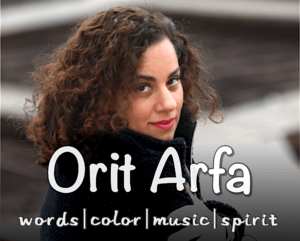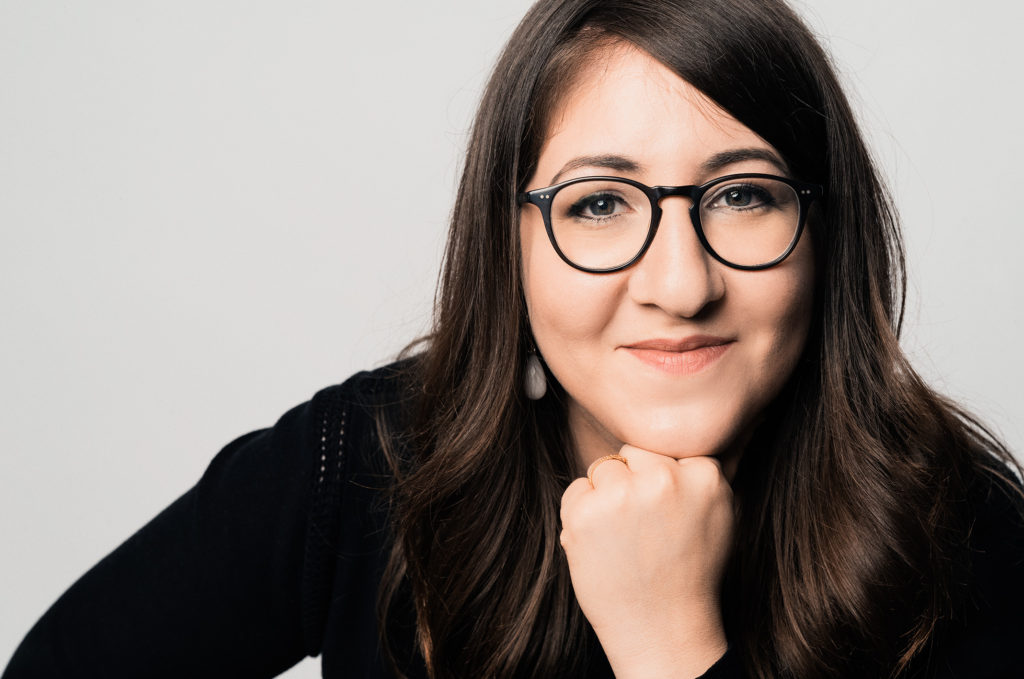Jerusalem Post Magazine, May 4, 2018
Click here to read on Jpost.com
Upon first arriving in Berlin on November 24, 2014, Deborah Feldman and her eight-year-old son landed in the “Gaza Strip.”
At least that’s what some Berliners call Sonnenallee Street in Neukölln, a slowly gentrifying Berlin district with a sizable Arab/Muslim population. Sonnenallee feels like it could belong in Wadi Ara, with bakeries serving baklava, shwarma joints and bridal shops all advertised in Arabic. And, of course, there are the coffee shops where (mostly) Arab men smoke hookahs and drink coffee in lieu of alcohol. Men are often seen walking in posses; the women, covered.
“I’m just thinking to myself: So I ended up in some farflung ethnic enclave in an outer district,” Feldman said from Starbucks near Stadtmitte, in the center of Berlin. “That’s what I thought when I got there. Well, I thought, I’m kinda tough, and it’s temporary, so I’ll figure it out.”
She moved out of her Neukölln sublet about a year later, and during the interview she was a bit in disarray, catching up on emails over her phone. She had just moved again, this time to Schoenberg in West Berlin, a neighborhood that had a sizable prewar German-Jewish middle-class population. Her Internet hookup was delayed due to bureaucracy, so she was relying on Starbucks Wi-Fi to stay connected.
But Feldman is tough – able to withstand the “Gaza strip” and a Wi-Fi shortage. Aside from being a New Yorker (Williamsburg to be exact), she also survived the confines of Satmar Hassidism, a different kind of confining, chauvinistic religious-ethnic world. She told her tales in her best-selling, controversial memoir Unorthodox: The Scandalous Rejection of My Hasidic Roots, tales ranging from how she hid secular books under her bed to how she left a marriage arranged for her at age 17.
If, in her former community, she had to hide her “non-Jewishness,” in Neukölln, at least, she felt she had to hide her Jewishness, particularly that of her son’s. She describes her 12-year-old son as “very Jewish.” For the first time, she had to explain to him what “antisemitism” is. These days, in terms of practice, she celebrates the occasional holiday, but she’s not a “believer,” invested instead in the tradition of Jewish thinkers of the Enlightenment, making her transition to Berlin, where Moses Mendelssohn made his mark, natural.
“I didn’t want him to say the wrong thing to the wrong person,” she explained. “He understood, but it was hard for him to change, because he’s a child.”
BUT NEUKÖLLN is also known for its hipster spots, attracting the folks who resist the upwardly mobile, bourgeois, more homogeneous vibe of other Berlin districts. And blame it on the God she doesn’t really believe in, her landing in Neukölln led to a fateful encounter.
She found refuge at a café that she calls an “island” for artsy types. She listened in on a conversation with a café regular who was speaking to a writer, impressed with his knowledge of literature. Days later, she struck up a conversation with him at the register, admiring the books he was holding. Turns out he was a publisher, Christian Ruzicska, founder of a boutique publishing house.
“I was fascinated by him,” Feldman recalled. “He was a real living creature from older times. The publishers I knew from New York were businesspeople and status denizens.”
She invited him to Shabbat dinners she’d hold in her Neukölln apartment – a tradition she keeps in part for its social value. The friendship soon turned into a close professional relationship. At first, she didn’t tell him she was an author, doubting that Unorthodox was literary enough for his house. He disagreed.
“He said, ‘Deborah, if you take the cover off, it’s literature.’ It blew my mind.”
With his publishing house, Secession, she published the best-selling German version of Unorthodox and her first book written in German, Uberbitten, which means “to reconcile” in Yiddish. It’s a German retelling of the Unorthodox sequel, Exodus, including elements from her journey to Berlin and reconciliation with Germany. With a solid base in Yiddish, Feldman quickly became fluent in German, allowing her also to conduct book readings in German.
“At the very beginning, Uberbitten asks the question: How do you leave one culture completely behind and have the chance to fully arrive in some other life or world? The book uses many narrative threads to explore that question,” she said.
WHAT ATTRACTED her to the “other life” of Berlin was its openness, but not at first. Her first visit to Berlin came in 2013, when she embarked on a heritage tour of Germany, Hungary and Poland in the footsteps of grandparents. Her mother, a lesbian, left the ultra-Orthodox fold and her marriage to Feldman’s mentally impaired father when Feldman was young.
Feldman was raised by her Hungarian grandmother, a Holocaust survivor, who in 1944 was deported to Auschwitz, only to barely survive three death marches.
Her community was one in which the Holocaust was regarded as punishment for straying from the Torah.
“My whole community was basically centered around the Holocaust,” Feldman said, “but no one focused on individual stories. It was the ‘big Holocaust’ that happened to us, and she [Deborah’s grandmother] never said it happened to her.”
Upon leaving Berlin for the first time, Feldman felt unnerved and heavy. Her main association with Berlin was the Holocaust. But then, in 2014, while taking part in a documentary on women who left strict, patriarchal communities, she saw a different side of the city. A fun, creative side. A diverse side. A side she could live in.
“We were staying at a real house, not a hotel, and I was meeting real Berliners,” she said, although “real Berliners” means a little bit of everything, especially “rootless” people: Muslim refugees, homosexuals, Russian feminists, international artists and, of course, Israeli expats.
“It’s not a status society,” she explained. “No one cares what kind of career you have and who you know. It’s about are you a cool person and do you have something cool to say?” She met a fellow ex-haredi (formerly ultra-Orthodox) who also left an arranged marriage and was forced out of his child’s life. He is now a successful photographer, living with his Jewish boyfriend in Berlin.
“It was a really sad story, but he seemed in the present moment in which I met him quite well-adjusted and quite happy. And I asked him, ‘How is it possible that you’re okay?’ and he said: ‘You have to put physical distance between you and your past, and you have to find a place where not everybody knows you from kindergarten, and for me that’s Berlin. It really stuck with me.”
He encouraged her to apply for a German passport, which she did, not without difficulty. Her case was initially rejected because documents provided by family could not prove her great-grandfather’s German nationality. After digging into Munich archives, she found the records. Turns out, her great-grandfather was the product of an illegitimate union between a runaway shtetl girl and her older Catholic lover, a foreshadowing, perhaps, of the “sins” of the daughters.
“I also discovered that my great-grandfather had attempted, already in 1919, to get Bavarian citizenship based on his German father. The case dragged on 10 years, at which point the rejection letter he received declared itself on racial grounds (you will poison this nation with your dirty blood, etc.), which is why I was able to receive my citizenship in his stead, as a kind of Wiedergutmachung [recompense].”
This story of her rebellious great-great-grandmother is now the basis of a historical novel in the works.
Feldman went to Israel for the first time in 2015 for work and out of curiosity, but she hasn’t been drawn back. She blames it partly on having toured Israel during Passover, making her relive some of the insularity she had escaped.
“I think what happened was that I wasn’t able to appreciate the nice parts, because I was too aware of the bad parts,” she explained, bad parts that include elements of theocracy and racism she says she encountered.
The Satmar community in which she grew up is anti-Zionist, and it’s difficult to label Feldman today as a “Zionist,” but for completely different reasons.
“I’ve read a lot about early Zionism and the original Zionist dream and pluralist state, and the German Jewish Zionists appeal to me, and in that sense I think the basic idea of Israel having the right to exist, I think I’m there. But in all other regards, I’m critical and dissatisfied. The one time I visited Israel was difficult for me on a personal and political level.”
As a German voter and socialist, she was torn during the last German elections, dismayed by anti-Israel rantings of some politicians, like that of former foreign minister Sigmar Gabriel, the former leader of the Social Democratic Party. “There’s always a question when you’re an ethnic minority.”
BUT RIGHT now, home is Berlin, where her literary star is on the rise, and where she’s been in a relationship with a German man for three years. And while she’s finally settled into her new apartment with her son (with Wi-Fi up and running), the memories of the past and the pain are omnipresent.
“I walk out every day and see Stolpersteine [brass plates embedded in sidewalks commemorating victims of the Holocaust], and it hurts. It always hurts, especially because they’re dirty. But a lot of my Jewish friends who grew up in the West say it still hurts them.
And I think it’s supposed to hurt.”

